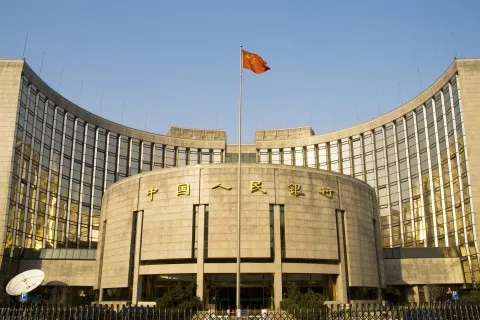
Coronavirus outbreak pushes back funds for China's state finance firms
But they will continue to get government support given their involvement in public infrastructure.
The coronavirus may delay or deuce the financing that local government financing vehicles (LGFVs) receive from the Chinese government, according to Moody’s Investors Service.
This is due to the outbreak negatively impacting the growth of local economies and government revenues, said Moody’s analyst Sarah Xu.
Further, should the outbreak persist for an extended period, more credit divergence is expected to occur. The virus will also weigh in further on LGFVs credit quality the longer it occurs.
In particular, credit quality will weaken for LGFVs with higher exposure to commercial businesses or those owned by lower-tier RLGs in less developed areas, noted Moody’s.
But whilst the coronavirus outbreak is a credit negative for the Chinese local government financing vehicles (LGFVs), it does not pose an immediate refinancing risk, according to Moody’s Investors Service.
"It's possible that the coronavirus will delay or reduce the funding LGFVs receive from their regional and local government (RLG) owners in the first half of this year, given that the outbreak is likely to have a negative impact on the growth of local economies and government revenues," says Moody’s analyst Sarah Xu.
"However, that doesn't mean that LGFVs' importance to RLGs will diminish. We expect LGFVs will continue to receive government support, maintain their funding access and benefit from credit easing measures," she added.
The central government’s measures to help RLGs mitigate the negative effects from the outbreak and ensure adequate liquidity in financial markets, announced on 23 January, will likely mean that LGFVs will continue to receive support.
Moody's expects government support will remain forthcoming given their involvement in important public infrastructure projects.
Further, LGFVs are not driven to maximize profits, and the majority of their cash flow comes from the government, noted Moody’s. LGFVs are likely to receive subsidies to maintain operations essential to local government, such as public services. This means credit quality will be less affected by the outbreak than that of many private-sector companies, the report said.
"Given this factor and LGFVs' continued strategic importance to governments, we believe onshore investors will continue to prefer LGFV bonds over similarly rated non-LGFV corporate bonds, especially at the lower end of the rating scale," noted Xu. .




![Lorem Ipsum [ABF 1]](https://cmg-qa.s3.ap-southeast-1.amazonaws.com/s3fs-public/styles/exclusive_featured_article/public/2025-03/a_hand_pointing_to_a_futuristic_technology_5b87c9d0e3_1.png.webp?itok=2w0y1WhS)


![Cross Domain [Manu + SBR + ABF + ABR + FMCG + HBR + ]](https://cmg-qa.s3.ap-southeast-1.amazonaws.com/s3fs-public/styles/exclusive_featured_article/public/2025-01/earth-3537401_1920_4.jpg.webp?itok=WaRpTJwE)







 Advertise
Advertise

